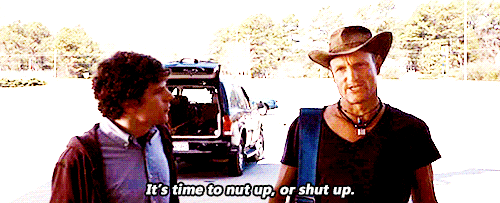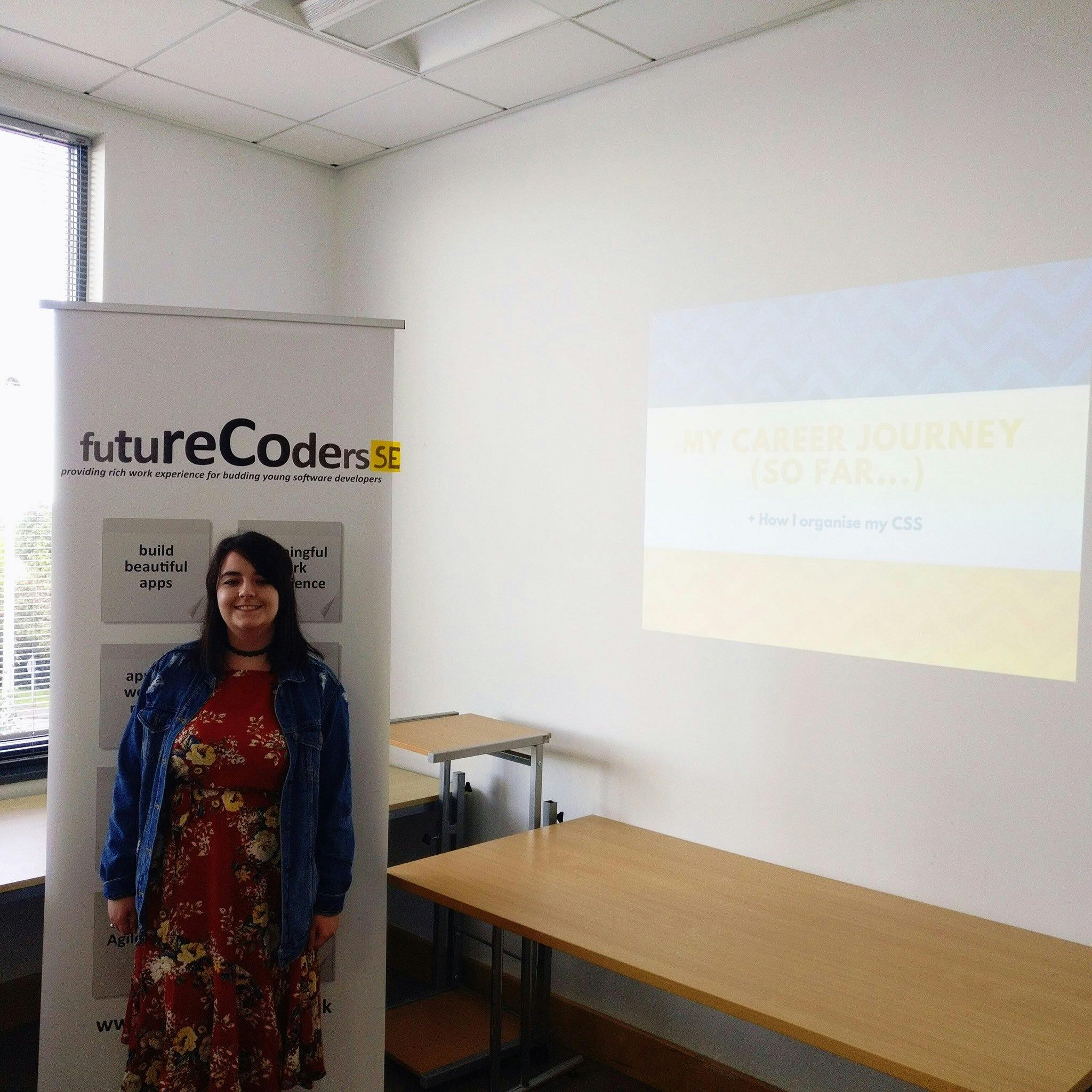How I Survived My First Tech Talk
Recently, I was lucky enough to successfully deliver my first tech talk! Here are some of the things that I learned.
Recently, I’ve been pushing myself to do a lot more things that challenge me. As a generally introverted person, I avoid small talk, spend a lot of my time indoors, and I find the thought of public speaking terrifying. If you were to ask me a few months a go if it’s something I’d want to do, I would have sharply said no! So a clear challenge for me would be to get over my fear of speaking, and what better way to do it than to publicly speak to an audience containing strangers about a topic I am not an expert in, to tech experts. Clearly, I don’t mess around.
I was given the opportunity to give my tech talk by the amazing people at futureCoders. Their mission is to provide high-quality work experience for young coders, helping them become strong developers by working two days a week on real, exciting projects, which you can read more about in their Mission Statement. Every month, they host a coding challenge evening that’s usually kicked off with a tech talk, followed by pizza and programming. What more could you want? I am fortunate enough to be a volunteer project lead with them, using my experience as a developer to guide the students through different projects. I’m incredibly grateful for the opportunity, as not only is it allowing me to grow as a developer and mentor, but it’s incredibly rewarding seeing the students and company grow, too. When Karen, Director of Development at futureCoders emailed me asking if I’d like to do the tech talk for August's coding challenge, it was such a great opportunity and I was so grateful to be asked, I had to say yes.

Preparation is key
Now was the challenging part. I had to plan how I was going to deliver my talk. Karen recommended that I spoke about my career as a developer so far, as this could be really helpful for the students as an insight on how they could also start their career. After the career talk, I was going to talk about one of the first things I learnt as a developer at Space Between- how to structure my CSS with BEM syntax. It’s something I can talk about pretty confidently as I use it every day, and we have also started using it at futureCoders to make sure our stylesheets are as efficient as can be!
Planning
I had to get all of my ideas in front of me so I could organise them, and have a plan of what to speak about. I wrote up a brain dump of all of the points I wanted to cover as bullet points, which is a great way to build a foundation of the talk, as the points can highlight the key sections that build the structure of the talk, and you can then write the content around them. For larger parts, you can split the content into sub points.
I ended up writing a paragraph for each point and ended up with almost a 3-page script, which was definitely overkill but it was a nice way to see all my thoughts and then organise them, and I could read through and take out parts that no longer seemed important.
Get some feedback
Now I had the content down, I sent it out for feedback to a few people. It’s important to get a fresh set of eyes on most things you do, as others can find points for improvement that are easy to overlook when you’re the writer. I got some great feedback from Luke, who has done many tech talks before and a brilliant front end developer, so he was a great person to have review my talk. If you can send your talk to as many different people as you can it can be really beneficial, such as an expert in the field you’re talking about or someone who’d be the target audience. They could definitely make sure the content is relevant and interesting.
Visual helpers
When talking about something like code, it’s important to have some slides to show the code you’re talking about, or even better, a live demo. I get anxiety just typing in front of people, and so I played it safe with slides containing pictures of the BEM classes I was talking about, considering BEM can be syntax heavy. I used Canva to create my slides but the best choice is using whatever you feel comfortable using. Whatever you use, make sure you have an offline copy, or pray to the Wi-Fi gods. Not having examples of your code could make delivering a lot more difficult - especially if it’s code heavy.

Prepare and you'll give a great talk. Unlike this monkey who had no back up of his tech talk
I made a slide for each section of my talk, with some summarising bullet points of what to talk about. This is helpful for the audience if they wanted to take notice, but also for myself as a speaker to keep me on track if I needed it. I found making the slides a really helpful process, as I could now visualise the talk on the screen and start identifying the key things I had to talk about.
Practice
With my trusty slides, I could now practice how I was going to deliver my talk! This is vital - after going through my talk I identified that it was a lot longer than the 15 minutes allocated and had to cut it down. I realised a lot of my talk was me waffling, so could go back and take those parts out. What’s also important is making sure that the way you’re delivering the talk is efficient, and by practising your talk in front of people they can pick up any mannerisms, like hand movements, poor eye contact and the way you’re talking. I was really nervous so I practised my talk with my SO, who identified that I was talking a bit too quickly, playing with my jacket, and making weird hand gestures - all these things I didn’t even realise I was doing! After a few more practice runs I had stopped these habits and was delivering a good talk!
One thing I had to remember, was that no one else knows what you have planned to talk about. I was forgetting some of the points that I had written down, and when I remembered this whilst talking, I froze and got frustrated I had missed it out. In reality, no one knows what you’ve written down, or that you’ve forgotten to bring something up. You shouldn’t try and learn a script and recite it - especially a 3 page one. Just focus on the main points and talk, as if you were having a conversation.
Delivering the talk
On the day, I was incredibly nervous, despite all of the planning I had already done. What helped was practising my talk again on the day, and having my colleague Danny come to the talk with me. At the event, it helped to remind me to stay calm, and breath! I made sure I went in positive, and also got to talk to a lot of the people at the coding challenge before hand, which was nice as I felt a lot more connected to the audience.

During the talk, I tried not to pay too much attention the audience and put most of the attention into what I was saying and making sure I was saying it loudly, with a smile and remembering to taking breaths. I tried to keep eye contact with the audience, not staring into space or staring at one person for too long. At the end, I was so relieved and proud - I had finished my first tech talk! I would say it was a success, the audience enjoyed it and I got some interesting questions afterwards. If I was to do it again, and I definitely will now, I wouldn’t write a huge script but just stick to some key points and talk about them as trying to remember that much information is the main thing that made practising difficult. If you’re reading this and you’re having a tech talk, remember to just enjoy it, and if you put the work into practising beforehand it will definitely show and you will have a great time!
